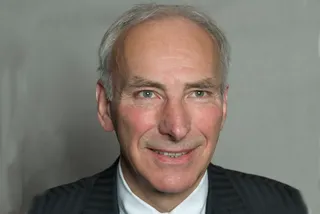
What have we learnt from the Autumn Statement?
The Labour Treasury Minister Liam Byrne famously left a note for his successor after his party lost the 2010 election. It said, “Sorry: there is no money left".
George Osborne ought, in fairness, to have left something similar for his successor when he was abruptly catapulted from office, having been on the losing side of the Brexit vote. For that was the subtext of yesterday’s Autumn Statement delivered by Chancellor Philip Hammond. Even if the coffers are not quite empty, they are heading that way. The slowdown in growth as a consequence of the Brexit vote will cost the economy £122 billion by 2020, he said. It left him very little room to manoeuvre; his budget statement consisted of a wealth of good ideas, but there is precious little money to make them happen.
Though the press leaks beforehand told us that there would be relief for the Jams – those who were ‘just about managing’ - what they were offered in terms of an increase in the minimum wage was a lot less than many of them will lose in benefits. The fact is that those of the millennial generation are significantly worse off than their parents and grandparents were at a similar stage in life. They are better qualified, but earn less. They are significantly less likely to own a home. They have high levels of student and other debt; they are unlikely to have a significant pension. The truth, which was not spelled out by the Chancellor, is that for this group there is no jam today, and there will be no jam tomorrow either.
Chancellor of the Exchequer Philip Hammond
Looking back on today from 20 years’ time, political historians might also marvel at the way in which what is undoubtedly one of the most right-wing Tory Governments since Margaret Thatcher has embraced the socialist ideal of an industrial policy. Most of the statement comprised measures which the Government hopes will foster industrial research and innovation and lead to a boost in productivity. Many of these ideas have been lifted from the speeches of Chuka Umunna when he was Labour’s business shadow five years ago. That does not make them bad, or wrong; but it does underline how worried Government is about our economic prospects, and our ability to compete in the world if we do persist on our current course and leave the European Union.
The big question, of course, is whether or not they will work. They certainly will not do any harm, but whatever good they could do will take years to work through, and Governments don’t normally stay patient that long.
What does Brexit mean for our economic future?
But there is a bigger problem, which is that the flexible labour markets, a central plank of government policy, mitigate against increases in productivity. It is a question of psychology. If people feel insecure, stressed and under pressure, then they are unlikely to be able to give their best. They do not have the mindset to work either harder or more intelligently. The more employee rights and protections that are eroded, the harder is to make them more efficient. Thus, in mainland European countries, where labour markets are much less flexible and workers far more secure, productivity is significantly higher.
The technical term for a policy like this is seeking to have your cake and eat it. Some members of the Government specialise in such measures, but Philip Hammond is not one of them. All the more galling therefore that it should be him having to deliver it at the despatch box today. It does explain, however, why he thinks the Autumn statement should be scrapped and why he has no intention of ever delivering another.
Looking to book Anthony Hilton or for a speaker on politics and current affairs or finance and economics ?
We represent a total of over 6000 speakers, with 1000 listed on our website. For more info., call us on +44 (0) 20 7607 7070 or email us at info@speakerscorner.co.uk .
Have an enquiry?
Send us a message online and we'll respond within the hour during business hours. Alternatively, please call us our friendly team of experts on +44 (0) 20 7607 7070.
